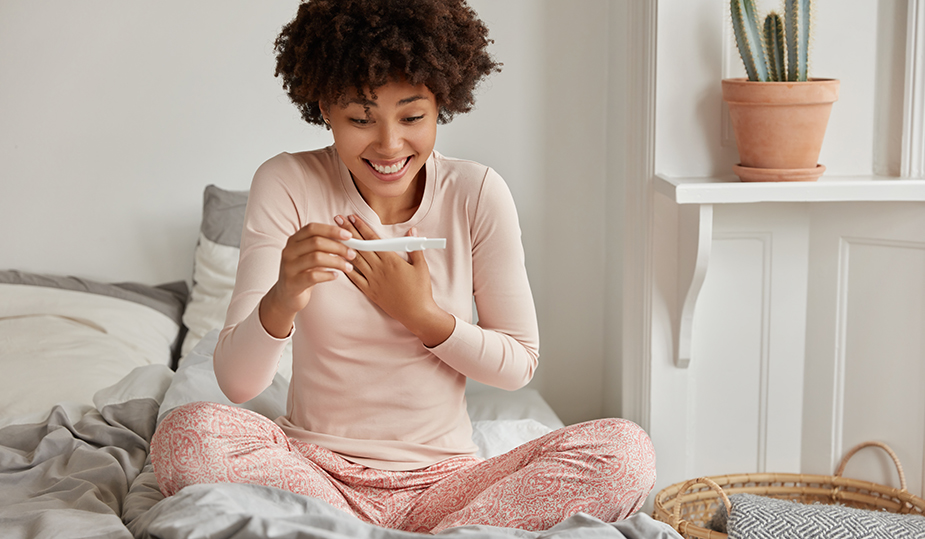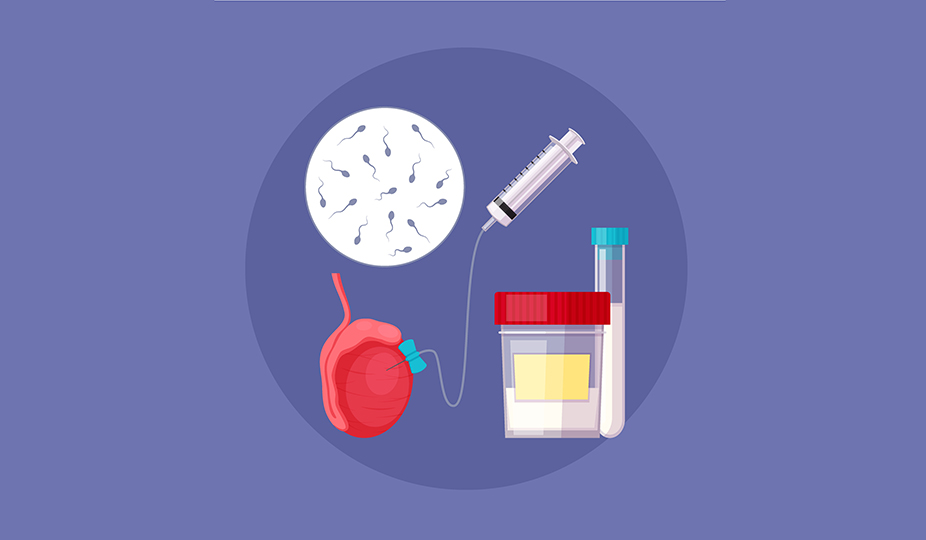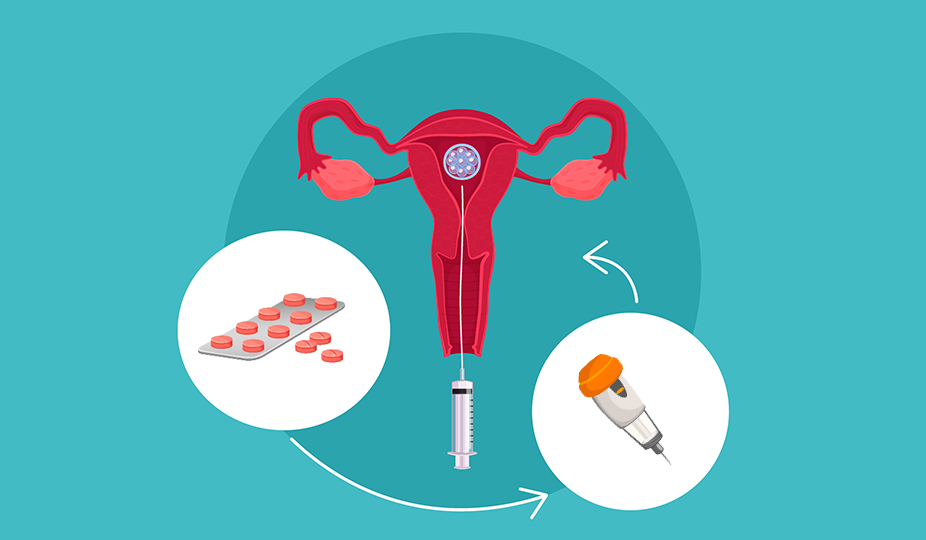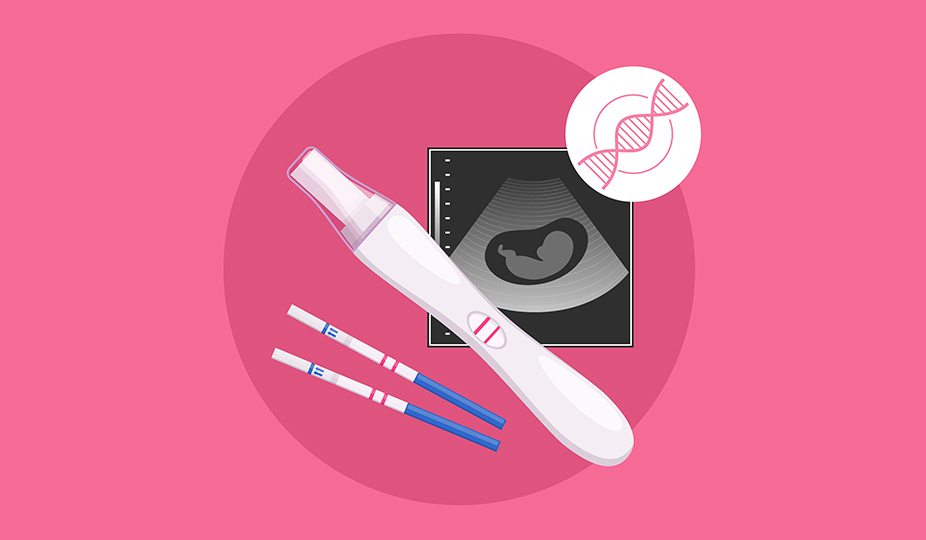How to Prepare for IUI Step-by-Step – Male & Female Advice
Preparing for the intrauterine insemination (IUI) procedure increases its success chances. That’s why in this post, we will share some helpful advice for men and women on how to prepare for IUI.

Artificial insemination is becoming the most effective way to achieve a successful pregnancy. Practice shows that not every woman can get pregnant naturally due to male or female fertility issues. If the pregnancy doesn’t start naturally after more than one year of regular unprotected sex, intended parents need professional help.
In this case, IUI comes in hand as the easiest and the most affordable assisted reproductive technique. It implies artificial fertilization of a woman’s egg by injecting her husband’s or donor’s sperm directly into her uterus. The procedure is relatively straightforward. Indeed, among all the methods of artificial insemination, this one is considered the simplest and the most gentle.
Additionally, IUI is a number one solution for lesbian couples who choose sperm donors to become happy mothers.
However, not every couple knows what basic rules they should follow before and after the procedure. This article will answer these questions and share some basic recommendations regarding male and female preparation, sperm donor choice, and additional tests one should conduct before and after the insemination.
How to Prepare for IUI – Guidelines for Males

Before doing artificial insemination, one must first determine whether the sperm fits the parameters necessary for IUI. To do this, a man needs to visit a urologist-andrologist and donate sperm for analysis (spermogram and MAP test).
Suppose the spermogram reveals deviations from the norm. In this case, the doctor may prescribe a special preparation of the sperm, i.e., the doctor creates an individual program to stimulate spermatogenesis. If doctors detect anti-sperm antibodies during the analysis, this is a direct indication for artificial insemination.
The man should also test the fluid from the urethra to detect possible genital infections. e.g., cytomegalovirus, mycoplasma, ureaplasma, chlamydia, gonorrhea. Doctors also make blood tests for the presence of antibodies and antigens to infectious diseases (HIV, syphilis, hepatitis B and C), a blood test for blood type, and Rh factor.
A week before donating sperm for artificial insemination, a man needs to prepare properly.
Male preparation before donating sperm implies the following recommendations:
- do not overheat (exclude the sauna and bath) and do not excessively cool the body;
- try to lead a calm lifestyle, do not get nervous, and limit physical activity;
- the duration of abstinence from sexual intercourse should be 2-3 days, but no more than five days (with longer abstinence, the quality of sperm deteriorates);
- do not drink alcohol and reduce the number of cigarettes smoked (and it is better not to smoke at all).
On the day of the artificial insemination procedure, the man needs to come to the clinic 1.5 hours before the IUI procedure and donate sperm via masturbation. In the case of donor sperm programs, doctors use frozen sperm.
In some cases, when a man has weak ejaculation, doctors allow sperm accumulation. Thus, a man can come to the clinic several times and donate sperm, which will be immediately cleaned, concentrated, and frozen (cryopreservation).
There are situations when a man cannot come to the clinic on the day of insemination. In such cases, he comes conveniently and donates sperm, which is also cryopreserved and used for insemination on the right day.
How to Prepare for IUI – Guidelines for Females

A woman undergoes almost the same examination as before IVF.
After all, if doctors detect some pathology before pregnancy, the treatment started on time will eliminate it. And if a woman is not sufficiently examined and becomes pregnant, then in the presence of infections or any other health problems, this can negatively affect the unborn child.
Necessary examinations of a woman before artificial insemination (IUI) are as follows.
- Blood test for blood group and Rh factor.
- HIV 1, 2 (IgG and IgM) test less than three months before the procedure.
- Determination of antibodies to hepatitis B and C.
- Determination of antibodies to Treponema pallidum in the blood.
- A blood test for antibodies to rubella (IgG and IgM) / once (with positive IgG results).
- Clinical blood test.
- Hemostasiogram – blood clotting tests (APTT, INR, fibrinogen, antithrombin III, thrombin time).
- Biochemical blood test for glucose, creatinine, AST, ALT, total bilirubin.
- Microscopic examination of cervical and vaginal fluid.
- Cytological examination of cervical mucus.
- PCR test for STI from the cervical canal: for Chlamydia trachomatis, Ureaplasma spp, Mycoplasma hominis, Mycoplasma genitalium, Trichomonas vaginalis, Neisseria gonorrhoeae, Cytomegalovirus, Herpes simplex types I, II, Human papillomavirus.
- General urine analysis.
- Ultrasound of the mammary glands on the 7-11th day of the menstrual cycle for women under 40 years old, or mammography for women 40 years old and older. If pathology is detected, a woman needs to take consultation with an oncologist-mammalogist.
- Ultrasound of the thyroid gland.
- Fluorography.
- Electrocardiography (ECG).
- The conclusion of a general practitioner on the health state, the possibility of treating infertility and carrying a pregnancy with the obligatory wording, `Carrying out assisted reproductive technologies and surgical interventions, having a pregnancy is not contraindicated.`
These examinations are recommended for planning a natural pregnancy as well. They help to avoid complications during pregnancy, both for a mother and a baby.
Suppose artificial insemination is carried out in the natural menstrual cycle. Therefore, a woman needs to come 2-3 times to a reproductive specialist for ultrasound monitoring of the growth of follicles in the ovary. The doctor will determine the nearest onset of ovulation and select the date of insemination.
If a woman is undergoing medication to stimulate ovulation, the doctor appoints more frequent visits to adjust the dose of the drug and monitor ovulation. After that, the doctor assigns the optimal date for artificial insemination.
How to prepare for IUI – recommendations for females:
- completely abandon bad habits (alcohol, smoking, etc.);
- do not worry and reduce physical activity;
- on an individual basis, a doctor may prescribe folic acid or drugs to improve hemoglobin;
- a few days before insemination, refrain from sexual intercourse so that spontaneous ovulation does not occur;
- tune in to a good mood.
Half of the success depends on the correct preparation for insemination.
What Should a Woman Do after Artificial Insemination?
For the first half-hour after artificial insemination, a woman should lie on her back. Almost immediately after the procedure, she may begin to have slight pulling pains in the lower abdomen. Some patients feel it only one or two days after the procedure.
If the doctor decides to continue progesterone therapy, it can raise the body temperature, cause drowsiness and muscle weakness. Also, the temperature may rise because there are some changes in the hormonal background. If the temperature increases greatly, a woman needs to consult a doctor as soon as possible. To minimize the negative effects of hormonal drugs, women can take them vaginally.
Some patients report nausea after the procedure. However, it has already been proven that insemination does not affect this. Nausea may likely occur in the background of increased pressure due to anxiety or stress.
At first, after the procedure, it is strongly discouraged to have sex. In addition, in no case should a woman lift weights. It is also forbidden to take any medicines other than those prescribed by the gynecologist. Consumption of alcoholic beverages is strictly prohibited. If possible, it is also worth quitting smoking. And, of course, all doctors recommend positive thinking because the overall success of the insemination procedure also quite often depends on this. It is also important to remember that doctors carry the IUI in several cycles, so you need to be ready to wait for some time.
How Do You Know if IUI Insemination Was Successful?

If insemination is successful, the woman does not start her menstrual cycle. Otherwise, the menstruation will begin about the thirteenth day after insemination. If the new menstrual cycle doesn’t start, a woman should take a pregnancy test. True pregnancy indicators reveal after the seventh day after the procedure. In addition, doctors make the first ultrasound three weeks after the IUI.
In any case, the likelihood of becoming parents after such a procedure is quite high. The main thing is to contact qualified specialists and believe in the success of the venture.
Frequently Asked Questions on How to Prepare for IUI
What is artificial insemination?
Intrauterine insemination does not put such stress on the body as IVF and ICSI, which allows it to be carried out up to six cycles in a row. In addition, from the technical point of view, this procedure is much easier, which means that it will cost several times less than in vitro fertilization. Thanks to all these advantages, many women insist on artificial insemination. We should emphasize that the procedure has its limitations. It is carried out only for certain types of infertility when the fallopian tubes are open and potent and the sperm indicators are high-grade.
In what cases is IUI done?
Indications for intrauterine insemination are as follows.
- Minor issues in the man`s spermogram (laboratory analysis of male sperm).
- A cervical infertility factor in which sperm cannot pass the cervical mucus, a so-called hostile uterus.
- Sexual disorders, vaginal spasms (such as vaginismus).
- Infertility of unknown origin. In this case, insemination is the starting stage of infertility treatment. However, experience shows that in such situations, IVF / ICSI gives a better effect.
- Lack of a sexual partner (single women and lesbian couples use donor sperm).
How is intrauterine insemination performed?
During intrauterine insemination, doctors inject the previously processed sperm into the uterus using a special thin intrauterine catheter. This procedure allows sperm to break through the cervical mucus barrier and increases the chances of reaching the egg. It is a great solution for low-motility sperm. More than that, prior sperm washing ensures that only healthy sperm clean from infections and defects reaches the egg.
As a rule, this procedure does not cause discomfort to a woman. A prerequisite for intrauterine insemination is the presence of the patency of the fallopian tubes.
How to choose a sperm donor for IUI insemination?
The choice of a sperm donor for IUI is carried out independently by the woman according to the data provided by the sperm donor. One can find out the phenotypic features of the donor`s appearance, blood group and Rh factor, family history, facts reflecting professional activity, education, inclination to certain hobbies. The amount of information depends on the sperm bank.
How to Prepare for IUI – Final Words
Now when you learned how to prepare for IUI, you see that the first step to a successful program is a consultancy. If you want to know more about the procedure, have any questions or doubts, don`t hesitate to contact our fertility experts. The consultancies are completely free of charge; we are always here to help you start a happy family!